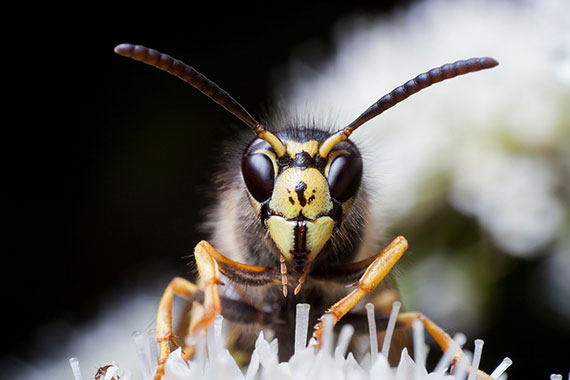When viewing images, do you notice that close-up shots evoke a feeling of intimacy more than those taken at a distance? It’s the fact that they were taken at close range to the photographer that creates this effect.
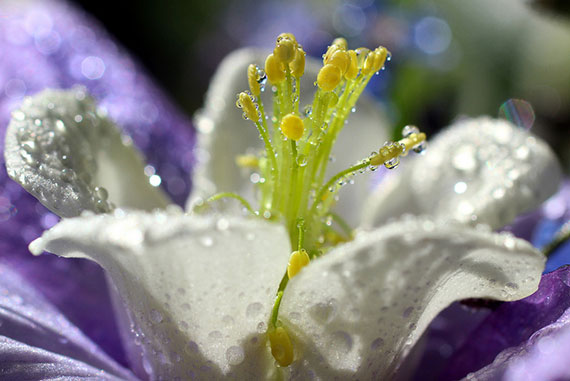
Photo by LadyDragonflyCC – >;<
This is what macro photography is all about. It’s taking photos up close and personal.
A close-up shot provides more details. As such, any photographer needs to make sure that his or her camera is focused well before snapping.
Camera Settings
For those using a point and shoot camera, the first step to capturing objects in close range is to set your camera to macro mode. Surprisingly, not many digital camera owners know about this. The macro mode is normally symbolized with a little flower, and once this is set, your camera will automatically know that you want to focus on a particular subject closer to your lens. This setting will also tell your camera to choose a large aperture to ensure that the subject is more in focus than the background.
Macro Photography Composition Guidelines
Experts also point out the importance of composition. This means knowing how you’re going to compose your shot with your subject in place. You may have the most expensive digital camera, lens, and other accessories, but if you don’t know how to frame your subject, you won’t succeed in your goal of capturing quality images.
Lead Room
One aspect of composition pertains to lead room, which is vital in nature and wildlife photography. This refers to providing extra space in your frame. As an example, you need to have extra room or space in the direction in which an animal’s eyes are looking. This will help create balance in your photo. So if a frog is looking towards the left, the left side should have more space compared to the right.
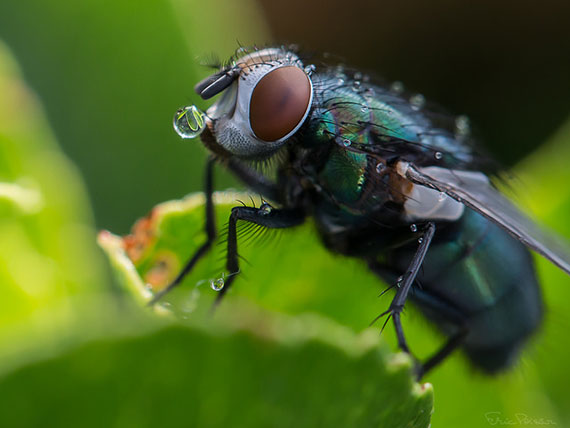
Photo by Eric; ISO 400, f/7.1, 1/100-second exposure.
On the other hand, if you’re shooting an insect, the eyes of which are not that prominent, you can always base your lead room on the shape and body structure of the subject.
Rule of Thirds
Another tip for macro photographers is following the so-called rule of thirds. The goal of this is to keep the balance in your photos depending on the subject’s position. You have to determine then whether the subject is looking straight at the camera or sideways. So if a frog, for instance, is looking straight into the camera, the best way to achieve balance is to center the subject in the frame.
Diagonal Lines
To keep your photo more interesting, experts recommend creating diagonal lines. Parallel lines can be boring and unappealing. But if you give it some diagonals, you create a great effect such as that of action.
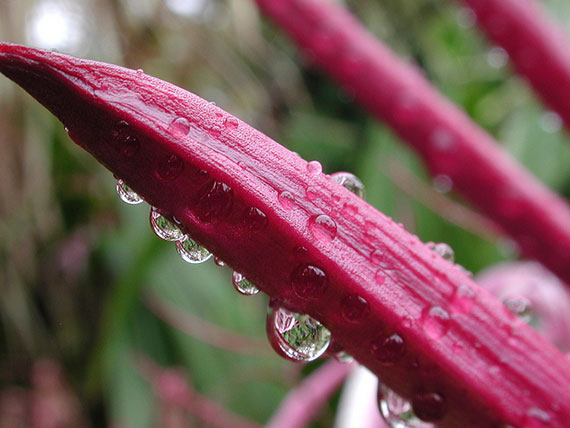
Photo by Dan Kühn; ISO 100, f/8.9, 1/9-second exposure.
Compositional Weight
The compositional weight is another thing. Again, this refers to positioning your subject in a diagonal manner. For example, you make sure that a butterfly standing on a small branch is positioned so its rear body part is pointing toward one corner on the bottom, while the upper end of the branch points at another corner on the top.
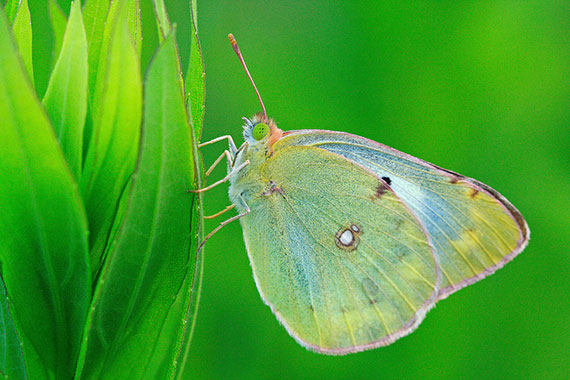
Photo by Mirai Takahashi; ISO 800, f/7.1, 1/20-second exposure.
Macro photographers sometimes get so caught up in close-up details of their subjects that they forget the importance of composition. Follow the guidelines above to put more visual interest into your macro photography.
About the Author:
For information about digital cameras, a resource is 42photo.com, New York’s legendary camera store in business for over 40 years.
Go to full article: Useful Composition Tips for Aspiring Macro Photographers
What are your thoughts on this article? Join the discussion on Facebook
PictureCorrect subscribers can also learn more today with our #1 bestseller: The Photography Tutorial eBook
The post Useful Composition Tips for Aspiring Macro Photographers appeared first on PictureCorrect.
